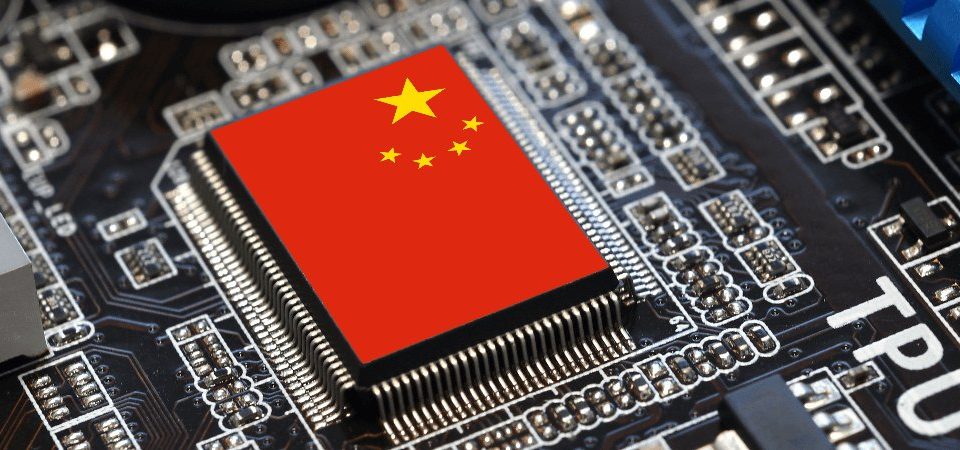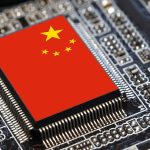U.S. blacklists over 50 Chinese tech companies to curb China’s AI and quantum advancements

The sudden success of Chinese AI startup DeepSeek in January caught tech leaders by surprise, triggering over $1 trillion in the U.S. tech market crash. Now, policymakers in Washington are stepping in, aiming to slow China’s momentum in artificial intelligence and other emerging technologies like quantum computing.
On Tuesday, the U.S. Department of Commerce added more than 80 companies to its export blacklist — over 50 of them based in China. The move marks the first major blacklist expansion under the Trump administration and highlights a renewed push to block Beijing’s access to high-performance computing and next-gen tech.
The move comes just over a week after OpenAI CEO Sam Altman urged the U.S. government to ban AI models developed by Chinese entities. In a policy proposal, Altman flagged DeepSeek as “state-controlled,” raising red flags over security threats and possible IP theft. OpenAI singled out DeepSeek and other Chinese open-source models as potential risks tied to China’s broader national tech agenda.
“Today, the Department of Commerce’s Bureau of Industry and Security (BIS) added 80 entities to the Entity List from China, the United Arab Emirates (UAE), South Africa, Iran, Taiwan, and others for activities contrary to U.S. national security and foreign policy,” the Commerce Department said in a statement on its website.
U.S. Blocks Chinese Firms Over Alleged Military Use of AI and Quantum Technologies
According to the Bureau of Industry and Security, these entities were added for working against U.S. national security and foreign policy interests. The blacklist blocks American companies from supplying technology to the listed organizations unless they secure government approval.
Many of the targeted companies are accused of developing advanced AI chips, supercomputers, and quantum tools that could boost China’s military capabilities. Two firms were flagged for allegedly supplying restricted tech to Huawei and its chip arm HiSilicon — both already under U.S. sanctions.
The U.S. also targeted 27 Chinese entities for acquiring American technology to aid military modernization and another seven for pushing forward China’s quantum tech programs.
Six subsidiaries of Inspur Group, a major cloud computing company already blacklisted under Biden’s term, were included in the latest action. China’s foreign ministry called the move a “strongly condemned” escalation, urging the U.S. to stop using national security as a catch-all excuse, according to Reuters.
“The latest additions cast an ever-widening net aimed at third countries, transit points and intermediaries,” said Alex Capri, a senior lecturer at the National University of Singapore and author of Techno-Nationalism: How It’s Reshaping Trade, Geopolitics, and Society.
“U.S. officials will continue to step up tracking and tracing operations aimed at the smuggling of advanced semiconductors made by Nvidia and Advanced Micro Devices,” Capri told CNBC.
Capri pointed to loopholes that have allowed Chinese companies to skirt restrictions and access strategic U.S. tech through indirect channels. He said U.S. officials are expected to increase monitoring for smuggled high-end chips, especially from Nvidia and AMD.
The timing is no accident. Tensions between Washington and Beijing continue to rise. The Trump administration has already ramped up tariffs, and now it’s tightening controls on tech exports.
Meanwhile, the emergence of startups like DeepSeek is accelerating China’s shift toward open-source, low-cost AI models — a contrast to the proprietary, high-cost systems favored by U.S. firms.
The broader strategy, shaped under the so-called “small yard, high fence” policy, is to restrict a small set of technologies that have strong military potential while allowing regular trade in less sensitive areas.
“We’re sending a clear, resounding message,” said Under Secretary of Commerce for Industry and Security Jeffrey I. Kessler, “that the Trump administration will prevent U.S. technologies from being misused for high-performance computing, hypersonic missiles, military aircraft training, and UAVs that threaten our national security.”
“The entity list is one of many powerful tools at our disposal to identify and cut off foreign adversaries seeking to exploit American technology for malign purposes,” he added.
DeepSeek made headlines in January after it surpassed ChatGPT on the App Store, sending shockwaves through tech stocks. The buzz around DeepSeek started in December after its V3 model outperformed top US AI models, including Meta’s Llama 3.1, OpenAI’s GPT-4o, and Alibaba’s Qwen 2.5 on third-party benchmarks—all at a significantly lower cost.




